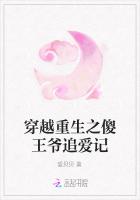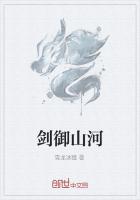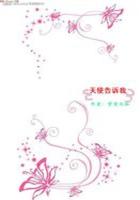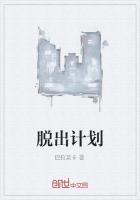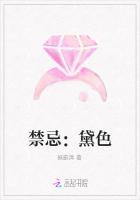PRINCIPLE 9:
Make the other person happy about doing the thing you suggest.
Fundamental Facts You Should
Know About Worry
In the spring of 1871, a young man picked up a book and readtwenty-one words that had a profound effect on his future. Amedical student at the Montreal General Hospital, he was worriedabout passing the final examination, worried about what to do,where to go, how to build up a practice, how to make a living.
The twenty-one words that this young medical student readin 1871 helped him to become the most famous physician ofhis generation. He organised the world-famous Johns HopkinsSchool of Medicine. He became Regius Professor of Medicineat Oxford—the highest honour that can be bestowed upon anymedical man in the British Empire. He was knighted by the Kingof England. When he died, two huge volumes containing 1,466pages were required to tell the story of his life.
His name was Sir William Osier. Here are the twenty-onewords that he read in the spring of 1871—twenty-one words fromThomas Carlyle that helped him lead a life free from worry:“Ourmain business is not to see what lies dimly at a distance, but to dowhat lies clearly at hand.”
Forty-two years later, on a soft spring night when the tulipswere blooming on the campus, this man, Sir William Osier,addressed the students of Yale University. He told those Yalestudents that a man like himself who had been a professor in fouruniversities and had written a popular book was supposed to have“brains of a special quality”. He declared that that was untrue. Hesaid that his intimate friends knew that his brains were “of themost mediocre character”.
What, then, was the secret of his success? He stated that it wasowing to what he called living in “daytight compartments.” Whatdid he mean by that?
A few months before he spoke at Yale, Sir William Osier hadcrossed the Atlantic on a great ocean liner where the captainstanding on the bridge, could press a button and—presto!—therewas a clanging of machinery and various parts of the ship wereimmediately shut off from one another—shut off into watertightcompartments.
“Now each one of you,” Dr. Osier said to those Yale students,“is a much more marvelous organisation than the great liner,and bound on a longer voyage. What I urge is that you so learn tocontrol the machinery as to live with ‘day-tight compartments’ asthe most certain way to ensure safety on the voyage. Get on thebridge, and see that at least the great bulkheads are in workingorder. Touch a button and hear, at every level of your life, the irondoors shutting out the Past—the dead yesterdays. Touch anotherand shut off, with a metal curtain, the Future—the unborntomorrows. Then you are safe—safe for today!... Shut off the past!
Let the dead past bury its dead.... Shut out the yesterdays whichhave lighted fools the way to dusty death.... The load of tomorrow,added to that of yesterday, carried today, makes the strongestfalter. Shut off the future as tightly as the past.... The future istoday.... There is no tomorrow. The day of man’s salvation is now.
Waste of energy, mental distress, nervous worries dog the stepsof a man who is anxious about the future.... Shut close, then thegreat fore and aft bulkheads, and prepare to cultivate the habit oflife of ‘day-tight compartments’.”
Did Dr. Osier mean to say that we should not make any effortto prepare for tomorrow? No. Not at all. But he did go on in thataddress to say that the best possible way to prepare for tomorrow167 ·
is to concentrate with all your intelligence, all your enthusiasm,on doing today’s work superbly today. That is the only possibleway you can prepare for the future.
Sir William Osier urged the students at Yale to begin the daywith Christ’s prayer: “Give us this day our daily bread.”
Remember that that prayer asks only for today’s bread. Itdoesn’t complain about the stale bread we had to eat yesterday;and it doesn’t say: “Oh, God, it has been pretty dry out in thewheat belt lately and we may have another drought—and thenhow will I get bread to eat next autumn—or suppose I lose myjob—oh, God, how could I get bread then?”
No, this prayer teaches us to ask for today’s bread only.
Today’s bread is the only kind of bread you can possibly eat.
By all means take thought for the tomorrow, yes, carefulthought and planning and preparation. But have no anxiety.
During the war, our military leaders planned for the morrow,but they could not afford to have any anxiety. “I have supplied thebest men with the best equipment we have,” said Admiral ErnestJ. King, who directed the United States Navy, “and have giventhem what seems to be the wisest mission. That is all I can do.”
“If a ship has been sunk,” Admiral King went on, “I can’t bringit up. If it is going to be sunk, I can’t stop it. I can use my timemuch better working on tomorrow’s problem than by frettingabout yesterday’s. Besides, if I let those things get me, I wouldn’tlast long.”
Whether in war or peace, the chief difference between goodthinking and bad thinking is this: good thinking deals withcauses and effects and leads to logical, constructive planning; badthinking frequently leads to tension and nervous breakdowns.
I recently had the privilege of interviewing Arthur HaysSulzberger, publisher of one of the most famous newspapers in168 ·
the world, The New York Times. Mr. Sulzberger told me thatwhen the Second World War flamed across Europe, he was sostunned, so worried about the future, that he found it almostimpossible to sleep. He would frequently get out of bed in themiddle of the night, take some canvas and tubes of paint, look inthe mirror, and try to paint a portrait of himself. He didn’t knowanything about painting, but he painted anyway, to get his mindoff his worries. Mr. Sulzberger told me that he was never ableto banish his worries and find peace until he had adopted as hismotto five words from a church hymn: One step enough for me.
Lead, kindly Light ...
Keep thou my feet: I do not ask to see
The distant scene; one step enough for me.






